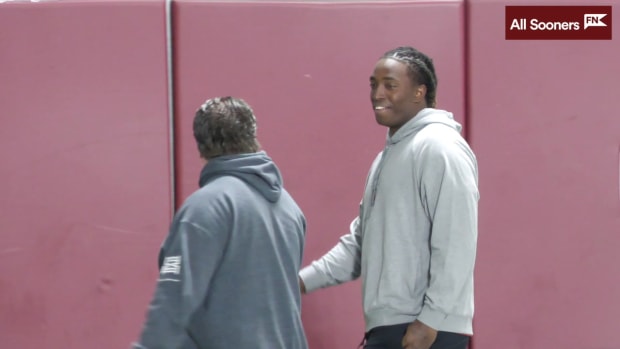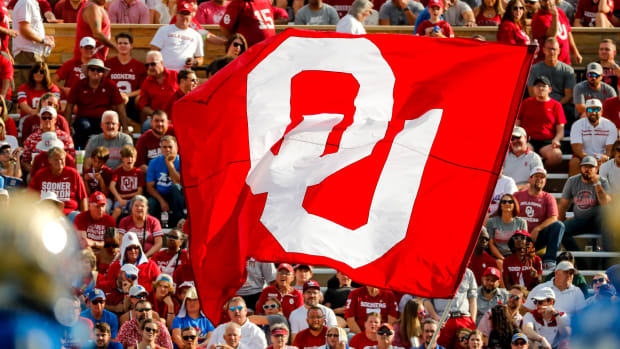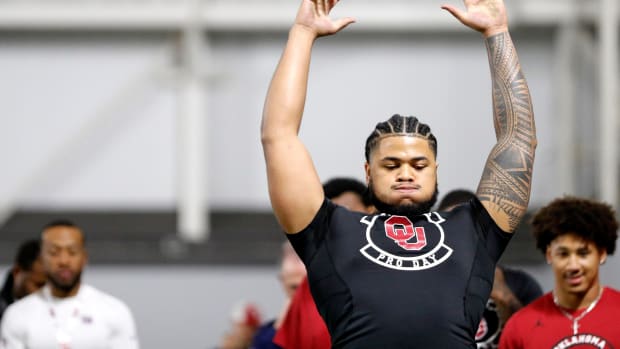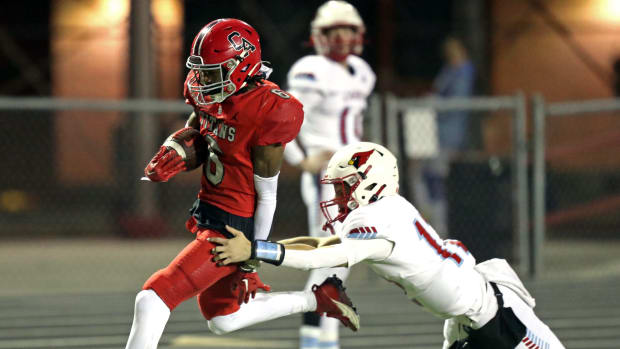COMMENTARY: Texas' problem was not Tom Herman, it's Texas — and Oklahoma
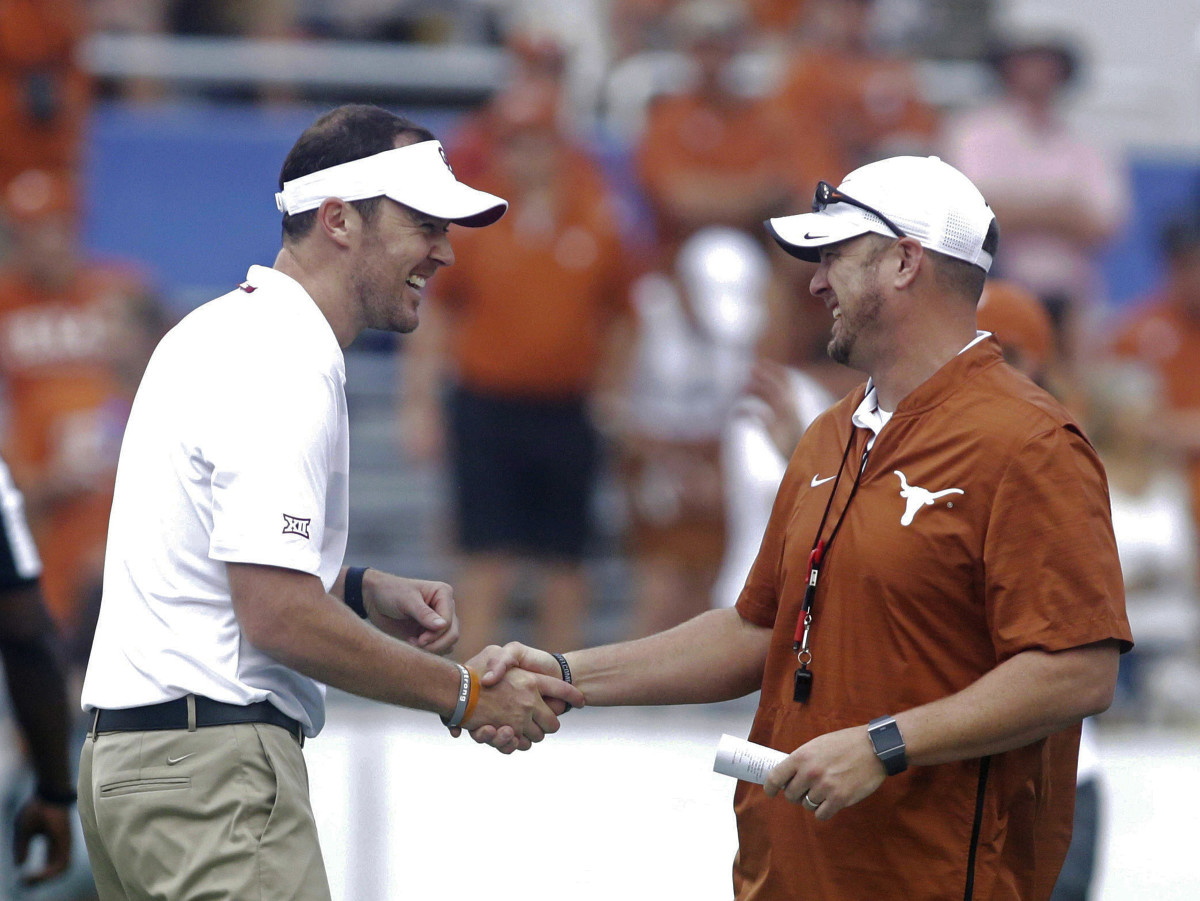
COMMENTARY
Texas is reportedly hiring Steve Sarkisian to fix a broken football culture that neither Tom Herman, Charlie Strong or Mack Brown could fix.
That’s a good one.
At best, it’s an interesting one. The drama never ends in Austin.
Sarkisian, 46, is the offensive coordinator at Alabama, but his history in college football goes back quite a bit further than a couple years in Tuscaloosa.
Sark was a BYU quarterback under LaVell Edwards. So dynamic offense is in his DNA.
He coached quarterbacks at USC, then for the Oakland Raiders in 2004, returned to L.A. for four years to helm the Trojan offense, then became head coach at Washington (2009-13) before taking the reins at USC.
His task at USC was grand: sift through Pete Carroll’s NCAA sanctions and unlock the many puzzles left behind by Lane Kiffin's four seasons.
But Sarkisian — widely liked as a person, genuinely accomplished as a coach — was fired at USC after just 18 games when it was reported that he missed a practice, came late, was sent home by his staff and that players smelled alcohol on him. ESPN also reported that several unnamed assistants said Sarkisian coached the 2014 Arizona game while drunk.
Prior to the 2015 season, Sarkisian — embroiled in a divorce at the time — was drunk while representing USC at a booster function, slurring his words, using profanity and berating other Pac-12 programs. He later apologized.
Then-athletic director Pat Haden apparently tried to get Sarkisian help, implemented a zero-tolerance policy on his drinking and later admitted he hadn’t thoroughly vetted his new coach’s foibles in Seattle, where numerous other alcohol-related incidents surfaced.
Haden fired Sarkisian just five games into the 2015 season, and Sarkisian was out of coaching until following Kiffin again — this time for the 2016-17 National Championship Game, when Kiffin left for Florida Atlantic and Nick Saban hired him to coordinate the offense in a title game loss to Clemson.
Sarkisian then spent 2017 as the Atlanta Falcons’ coordinator before he was fired there, and returned to Alabama as OC in 2019.
Now Sark, a SoCal kid from Torrance, CA, and a West Coast guy through and through — how's that for a cultural fit where the most successful coaches, Brown and Darrell Royal, were country boys? — is tasked with restoring greatness at a Texas program that has far more often bathed in mediocrity.
Sarkisian’s career coaching record in five seasons at Washington and 1 1/2 at USC is 46-35. His best season was 9-4 at Troy — a conference mark of 6-3.
At that rate, he’ll fit right in on the Forty Acres.
In the 11 seasons since Colt McCoy suffered a shoulder injury in the BCS National Championship Game against Alabama at the end of the 2009 season, Texas has had one 10-win season (10-4), one major bowl appearance (the Sugar) and has a winning percentage of .565 (78-60) — seventh-best among the 10 members of the Big 12 Conference.
The Longhorns had lost at least four games in 10 consecutive seasons before COVID-shortened 2020 came along. This year they went 7-3.
Brown won a national championship, nearly won another one, then went 5-7, 8-5, 9-4 and 8-5 in his last four seasons before someone in Austin decided he could no longer win at a high level — which is exactly what he’s done so far at North Carolina. He'll be coaching the Tar Heels Saturday in the program's first Orange Bowl trip, and it's best bowl appearance since 1950.
Hotshot defensive ace Strong went 6-7, 5-7 and 5-7 in his three seasons before he was fired in 2016.
And hotshot offensive guru Tom Herman — Mr. Mensa himself — went 7-6, 10-4, 8-5 and 7-3.
All this while landing the Big 12’s most decorated recruiting classes virtually every year.
“With our football season coming to a close, our vice president and athletics director, Chris Del Conte, has evaluated the UT program’s strengths and weaknesses and where the program is relative to our goals,” UT said in a statement Saturday. “While we have made measured progress during the past several years under Tom Herman’s leadership, Chris has recommended to the university president, Jay Hartzell, that UT make a coaching change to get us on track to achieving our ambitious goals. President Hartzell and the chair of our Board of Regents, Kevin Eltife, concur with this recommendation and have approved the change. We thank Coach Herman for his service and dedication to our student-athletes, our program and our university.”
Even in the COVID era, when university employees are being downsized or furloughed and the campus is cutting costs everywhere, Texas cares little about buyouts. The school will reportedly pay Herman some $15 million to fulfill his contract, plus the outgoing staff gets its $9 million.
What’s become clear is that Texas didn’t have a Mack Brown problem. It didn’t have a Charlie Strong problem. And it didn’t have a Tom Herman problem (although Herman had begun to lose recruits and verbal commitments at an alarming rate).
And in three or four years, when the school “makes a change” from Sarkisian, it won’t be a Sarkisian problem.
First, Texas has a Texas problem. The very culture of the program is saturated in entitlement. It’s been that way for generations now. Who knows how to fix it? Can it be fixed? Brown couldn’t, not at the end. Strong had no clue. Herman thought he could outsmart it, but no.
Second, Texas has an Oklahoma problem. While the Sooners have erected a monolith of 14 Big 12 championship trophies, Texas ranks second in the league’s 25-year history with just three. Bob Stoops went 11-7 against his biggest rival. Lincoln Riley is 4-1 agains the 'Horns. OU has six straight Big 12 titles and four College Football Playoff appearances.
Texas picked up its last trophy 11 years ago.
Firing Herman for someone of Urban Meyer’s stature made sense. Meyer has the championship rings and the gravitas to either handle or blow off the meddling Texas tycoons who think they know best. OU fans did not want to see Meyer in Austin.
Firing Herman for someone of Sarkisian’s stature is curious. Can a respected offensive coordinator with personal demons and a .568 winning percentage fix what his predecessors could not?


